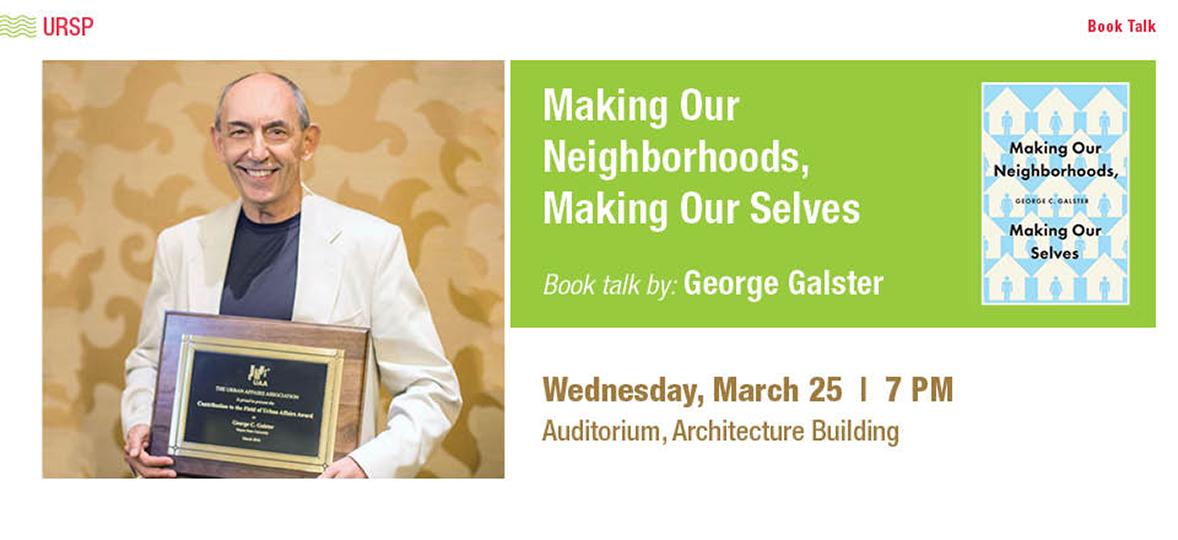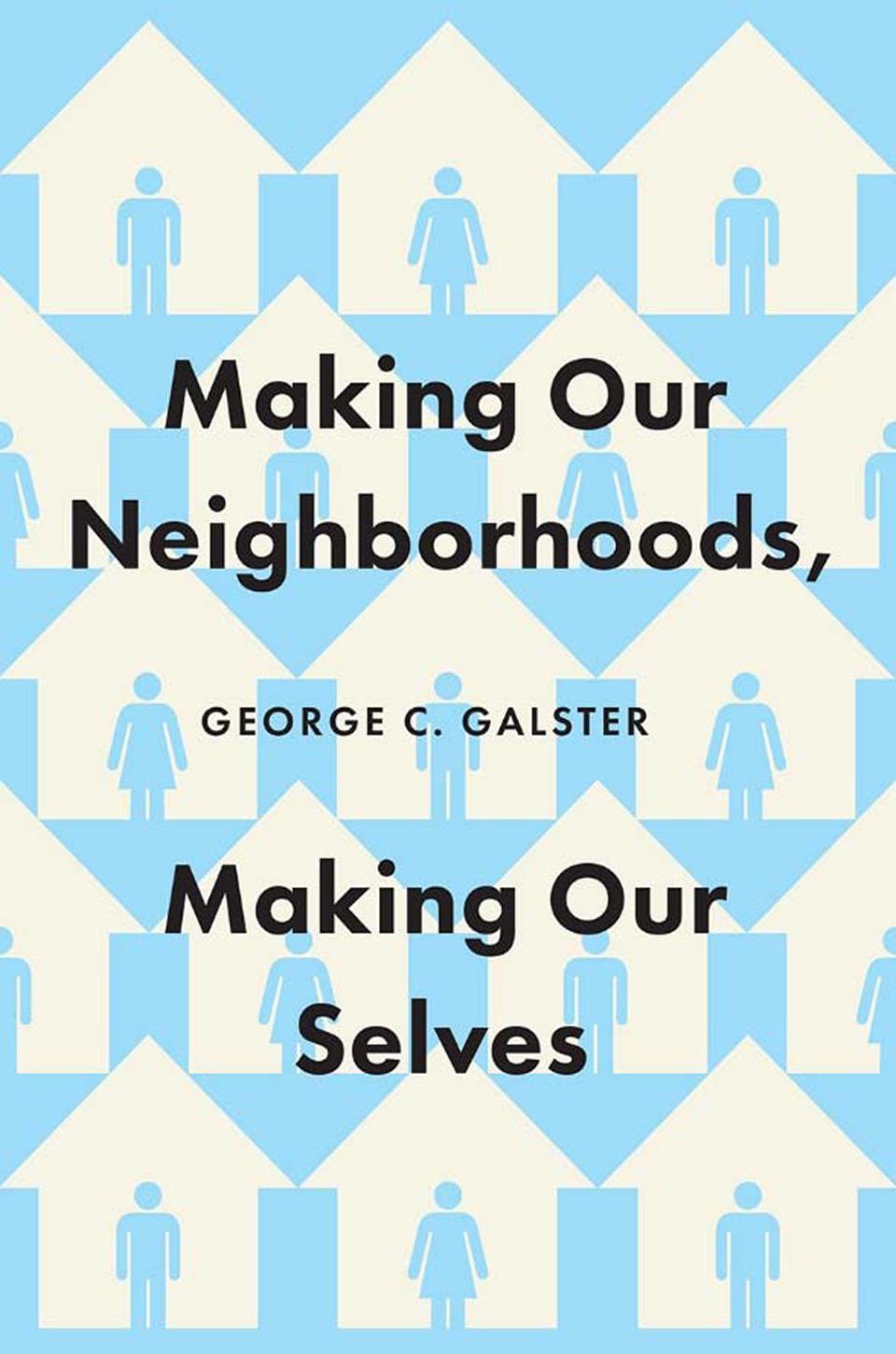3835 Campus Drive
Architecture Building (145 ARC)
College Park, MD 20742
United States
POSTPONED UNTIL FALL
"Making our Neighborhoods, Making Our Selves"
A book talk by George Galster
This book presents a holistic, multi-disciplinary analysis of the origins, nature and consequences of neighborhood change and offers strategies for making a more socially desirable palette of neighborhoods in America. The foundational proposition of this book is: we make our neighborhoods and then they make us. That is, our collective actions in metropolitan housing submarkets regarding where we live and invest financially and socially will determine what characteristics our neighborhoods will manifest and how they will evolve. In turn, these multidimensional neighborhood characteristics influence our attitudes, perceptions, behaviors, health, quality of life, financial well-being, children’s development, and families’ opportunities for social advancement. The book advances the Housing Submarket Model as a way of understanding the causes and effects of neighborhood dynamics through the lens of shifts in metropolitan housing demands and supplies. Unfortunately, the private, market-oriented decision-makers now governing human and financial resource flows among neighborhoods usually arrive at inefficient and inequitable outcomes from the perspective of the larger society. Inefficient resource allocations arise due to externalities, strategic gaming, and self-fulfilling prophecies. This market failure systematically produces too-little housing investment in many places and too much segregation by race and income. Moreover, lower-income, black and Hispanic households and property owners typically bear a disproportionate share of the costs associated with under-investment, segregation and neighborhood transition processes, while reaping comparatively little of their benefits. Because neighborhood context powerfully affects children, youth and adults—yet neighborhood contexts are extremely unequal across economic and racial groups—space becomes a way of perpetuating unequal opportunities for social advancement. To remedy these substantial market failures, this book provides a comprehensive set of neighborhood-supportive public policies and programs in the domains of physical quality, economic diversity, and racial diversity, which are guided by the principle of strategic targeting.
ABOUT THE AUTHOR:
George Galster earned his Ph.D. in Economics from M.I.T. and recently retired as Clarence Hilberry Professor of Urban Affairs at Wayne State University in Detroit. He has published over 150 peer-reviewed articles, 8 books and 37 book chapters on a wide range of urban topics. The Urban Affairs Association placed him on their “Service Honor Roll” in 2014 and awarded him the prestigious “Contributions to the Field of Urban Affairs” prize in 2016. He currently resides in Portland’s Pearl District.



